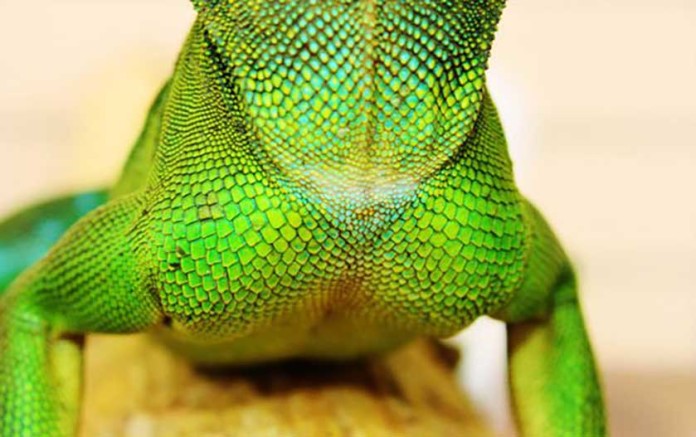You will be surprised to hear this, but keeping your Chinese water dragon in an environment that is too moist actually harms your pet. You may mist the dragon’s enclosure excessively to maintain the required level of humidity and keep your pet happy. This causes the moisture content to increase, which favors the growth of harmful microorganisms including bacteria and fungi. Chinese water dragons may develop skin infections if they are kept in a damp setting for a very long time.
It is obvious that water dragons need high levels of humidity, but you also need to provide adequate ventilation to prevent the enclosure from getting too humid. Enclosures that are not cleaned on a regular basis or stay damp for long periods are one of the most favorable spots for the growth of microorganisms.
Bacterial and fungal skin infections in Chinese water dragons can be spotted as discolored or dark skin areas. Fungal skin infections are characterized by dark brown scales which may appear on the lower side of your pet. These scales are also common in the tail region and can appear to be raised or filled with fluid. Your pet needs to visit a reptile vet for proper evaluation and treatment of skin infection. You also need to check your pet for skin infections before you bring it home from a breeder or local pet store.
If your dragon suffers from bacterial or fungal skin infections, you will have to apply topical antibiotics to get rid of the infection completely. It is also important that you disinfect the enclosure before you place your dragon back inside. It is better that you change the substrate and other cage décor if possible to prevent your pet from getting infected again.
 Your pet should get healthy in a couple of weeks after you start applying the antibiotic creams. You don’t need to worry about the ugly patches or discolored skin still visible in the affected region. Chinese water dragons shed their skin at regular intervals which will help your pet get rid of the dark areas.
Your pet should get healthy in a couple of weeks after you start applying the antibiotic creams. You don’t need to worry about the ugly patches or discolored skin still visible in the affected region. Chinese water dragons shed their skin at regular intervals which will help your pet get rid of the dark areas.
It is important that you consult a reptile vet to treat your pet. This is because skin infections also occur when your pet is infected by mites or ticks. Even these infections can turn serious and harm your pet therefore you need to get them treated at the earliest stage.










